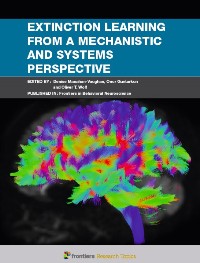DFG Research Unit 1581
Project Profile P2
The Role and Mechanisms of Synaptic Plasticity in Extinction
Extinction of procedural learning has been well characterized, and it is believed that it comprises new learning. However, with regard to extinction of declarative learning less is known.
We assume that extinction of declarative memory causes inhibition of the original learned information and, parallel, new learning that is modulated by the context (i.e. context-specific modification of the "old" memory). The hippocampus is of particular interest, as it is especially involved in the processing of declarative contextual information, and is a major structure for the encoding and processing of spatial information.
The objective of this project will be to address the abovementioned hypotheses, using a mechanistic and cellular approach to studying extinction. Our goal is to investigate whether extinction is accompanied by a neuronal "signature" that will help us test and extend the assumed hypotheses.
Method
The experiments are designed to assess activity in the hippocampus when an animal explores and encodes a spatial contextual environment. We will monitor changes in these responses when the context of the environment is altered and extinction occurs.
Electrophysiological measures are taken that assess:
- synaptic plasticity,
- place cell firing and,
- neuronal oscillations.
Subjects: Rodents
Cooperation within the Research Unit
- This project offers a cellular and mechanistic approach to studying extinction that complements the behavioral, pharmacological and imaging approaches of P3 through P8
- Project P1: Methodological and content-related similarities. Both projects record from the hippocampus during the learning process in free moving animals. A joint study on the electrophysiological analysis of extinction is planned.
- Project P3: Collaborations are planned where technological and experimental support will be given in the area of EEG telemetry during extinction.
- Project P5: Interactions in the area of neuromodulation of extinction.
- Project P6: They also investigate the role of attention for the formation of renewal effects but using pharmacological manipulations. Here, we have the unique opportunity to compare very different treatments within the same experimental procedure.
Contact: In case of any questions regarding P2 please contact Prof. Dr. Denise Manahan-Vaughan denise.manahan-vaughan@rub.de






 Don't forget...
Don't forget...
